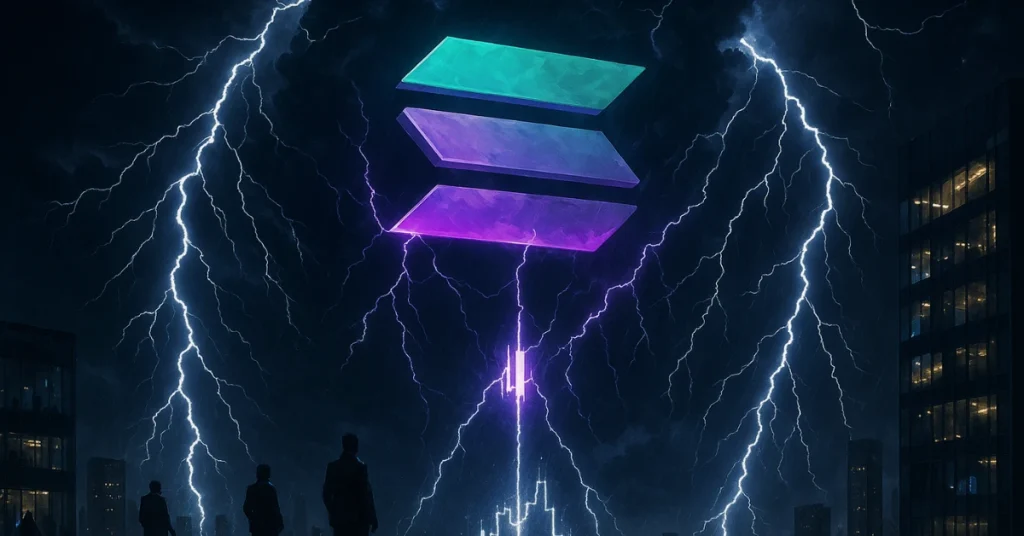In brief
- Digital asset custodian BDACS has launched KRW1, South Korea’s first fully regulated won-backed stablecoin, through a partnership with Woori Bank.
- Each token maintains full collateralization with Korean won held in Woori Bank escrow, according to BDACS.
- The launch comes amid competing parliamentary bills that debate interest payments and capital requirements for stablecoin issuers.
Digital asset custodian BDACS has launched KRW1, South Korea’s first fully regulated won-backed stablecoin, in partnership with Woori Bank.
The announcement follows completion of a proof of concept validating technical infrastructure spanning fiat deposits, token issuance, and blockchain verification, as per a Thursday press release.
Each KRW1 token maintains full collateralization through South Korean won held in escrow at Woori Bank, with real-time banking API integration providing transparent proof of reserves, according to BDACS’ statement.
The company trademarked the KRW1 brand in December 2023, building infrastructure before the advent of formal regulations.
KRW1 launched on the Avalanche blockchain, chosen for its “high-performance capabilities” and recognition by Korea’s Internet & Security Agency for “reliability in public-sector applications.”
“The successful test pilot of KRW1 demonstrates the need for a highly-performant and reliable blockchain tailored for a regulatory-compliant stablecoin,” Justin Kim, Head of Asia at Ava Labs, said in the statement.
BDACS envisions KRW1 serving remittances, payments, investments, and deposits, with public-sector deployment planned for low-cost payment and settlement systems in emergency relief disbursements.
The company plans to expand KRW1 to additional blockchains and explore collaborations with global stablecoin networks, including potential partnerships with USD-backed issuers Circle and Tether, according to the press release.
Stablecoins in Asia
South Korean internet giant Kakao is also developing a won-pegged token through its Kaia blockchain, having registered trademarks including “KRWGlobal” and “KRWKaia” in August, Decrypt reported earlier.
The launch comes as Korea’s neighbors advance their own stablecoin initiatives, with Japan’s JPYC expecting to receive regulatory approval from the Financial Services Agency for its yen-backed stablecoin later this year, making it the first officially recognized yen stablecoin.
Ripple and SBI Holdings are also preparing to launch RLUSD in Japan by early 2026 under the country’s Payment Services Act amendments.
Bank of China’s Hong Kong unit saw shares jump 6.7% earlier this month on reports that it plans to apply for a stablecoin issuer license.
Korean lawmakers split on stablecoin bills
South Korea’s ruling and opposition parties have recently filed competing stablecoin bills, though both demand full reserve backing and stronger oversight by the Bank of Korea.
The Democratic Party’s proposal explicitly bans interest payments and requires $3.6 million minimum capital, while the People Power Party’s legislation omits interest restrictions, focusing on licensing and disclosure requirements.
Rich O., APAC regional manager at OneKey, previously told Decrypt that Korea’s stablecoin rules need a “balanced approach,” with monetary sovereignty and consumer protections weighed against the risk that “excessive restrictions” could weaken competitiveness.
Daily Debrief Newsletter
Start every day with the top news stories right now, plus original features, a podcast, videos and more.
Source: https://decrypt.co/340120/bdacs-woori-bank-launch-south-koreas-first-won-backed-stablecoin-on-avalanche



